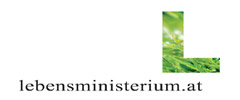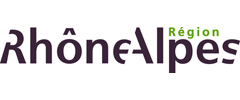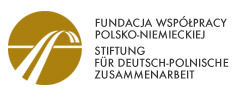Ukraine - Safe Drinking Water
Improving the drinking water conditions through public awareness and participation.
26.02.2004
| Countries: | Ukraine |
| Donors: | Ministry of Foreign Affairs, European Cooperation, MATRA programme, The Netherlands |
| Partners: | MAMA-86 Kiev |
| Issues: | Water & Sanitation |
| Duration: | 03/1999 - 12/2003 |

The clean drinking water campaign is a 3-year partnership project of WECF, the Netherlands and MAMA-86, based in Kiev, Ukraine, together with main partners of MAMA-86 based in the cities of Odessa, Artemivsk and Sevastopol. Other MAMA-86 partners, based in the towns of Ternopyl, Poltova, Mariupol, Nizin, Dniepropetrivsk, Kharkiv and Yaremcha are also taking part in the project's main drinking water activities.
The project receives funding from the Netherlands Ministry of Foreign Affairs MATRA programme.
Drinking water contamination
In 1998 MAMA-86 carried out a survey of ca. 1600 people in twelve towns of Ukraine and water tests by a Kiev laboratory in three of these towns. These studies showed that contamination of drinking water is both a very serious health problem in Ukraine as well as one of the main concerns of the population. People are particularly worried about the effects on their children's health. From this starting-point the project "Clean Drinking Water and Democracy Building" has been developed.
A Catalyst for building democracy
Drinking water pollution is of such concern to the population that it is a good theme around which to mobilize citizens to take their own responsibility and become more active in local policy making.
Pilot projects
In 1999 MAMA-86 and its local partners started several pilot projects to show how the drinking water situation can be improved by joined efforts from citizens, businesses and local authorities.
In Sebastopol, MAMA-86 invited a Dutch water engineering company to an infectious diseases hospital. The hospital - whose patients suffer mostly from diphtheria, hepatitis and meningitis - not only receives polluted drinking water, but also discharges its waste water without any treatment into streams and canals. Infectious diseases have therefore become more widespread. MAMA-86 and the water engineering company received funding and have started to build a small water-purification unit. The local authorities are co-financing this effort as it will benefit the health of the inhabitants of the city of Sebastopol.
In Artemivsk, the MAMA-86 group worked together with experts in order to identify leakages and prepare a feasibility study for repairs in the district of Soledar. This study showed that repairs would save a lot of money. The argument convinced the local authorities to carry out the required improvements. Within one year the work was finished and an entire region is now again supplied with constant and safe supply of drinking water.
In Odessa, MAMA-86 is carrying out a pilot project installing water meters in three large apartment buildings. In most countries of the former Soviet Union water meters do not exist and consumers pay a standard amount for water use, which has no relation to their actual water consumption. The installation of water meters by MAMA-86 Odessa shows how much water is consumed by the inhabitants of the apartment buildings, but also how much is lost on its way to the buildings by leaks in the distribution system. With such clear figures the local water utility plant and the individual apartment owners can finally be held accountable and made to pay the real cost of their water use. The aim is of course to promote water savings! MAMA-86 Odessa has cooperated with the university on this project and is planning to expand it to include a much larger number of apartment buildings.
By means of such concrete pilot projects the project partners show which short-term solutions are possible. Furthermore, they educate the local population about the many ways in which individuals at home can improve the quality of their drinking water, for instance by using inexpensive ways of filtering the water. The project partners welcome more contacts with water utilities and engineering companies from Western Europe to further develop these pilot-projects.
Awareness-raising and public participation
Changing the entire drinking water infrastructure in Ukraine will be a long-term process. The project therefore aims particularly at educating citizens and decision makers about the options which individuals, communities and local authorities have to improve drinking water quality in the short term. This awareness-raising about short term options will go hand in hand with education about the long term needs. For this last objective, the MAMA-86 organisations are organising public debates in the towns of Kiev, Odessa, Sebastopol and Artemivsk.
Related News
Meet the Winners of the Gender Just Climate Solutions Award at COP24
On the 70th anniversary of the Universal Declaration of Human Rights, we awarded Gender Just Climate Solutions Winners at the climate negotiations in Katowice, Poland
11.12.2018
Invitation: Gender Just Climate Solutions Award 2018
10 December, COP24 Katowice
04.12.2018
Getting to the Future We Want
4-7 November, Brussels: European Environmental Bureau’s (EEB) Annual Conference
12.11.2018
GoodFood4All
WECF and partners all over Europe start GoodFood4All Campaign
06.11.2018
#Ruralwomen: join our Women2030 campaign!
15.10.2018
Lack of trustworth information is a barrier to chemicals & product related decision-making
8-9 October, Geneva: short report of the meeting of the Aarhus Convention’s task force on public participation in decision-making
12.10.2018
Congratulations Sascha!
Named thirty-third most influential sustainability fighter in the Netherlands
08.10.2018
The Netherlands in the next gear - Adopt an SDG Live!
WECF and Building Change organised the event “The Netherlands in the next gear – Adopt an SDG live” on 27 September in the Koorenhuis in The Hague
02.10.2018
Human Biomonitoring for Europe
Vienna, 26 September: stakeholder forum
28.09.2018











































